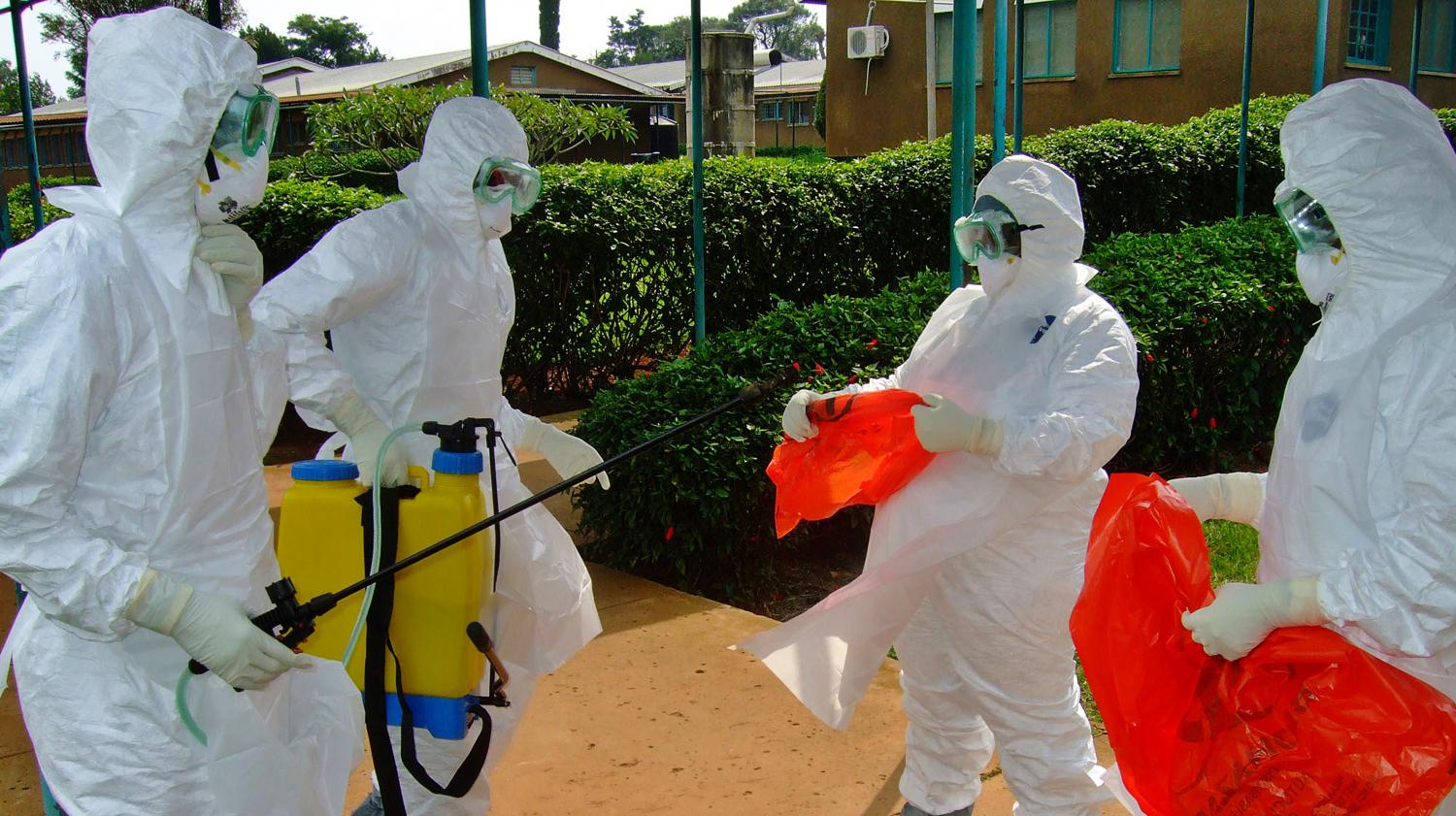The Lagos State Government on Thursday, July 24, 2014 alerted the public that a Liberian national, suspected to have the Ebola Virus Disease (EVD) was detected in a private hospital in the state last Tuesday.
In a swift move, the federal government was said to have deployed a team of high-profile medical practitioners to the state to detect deadly virus.
The Special Adviser on Public Health to the state government, Dr. Yewande Adeshina, disclosed this at a news conference which she addressed alongside the Project Director of Nigeria Centre for Disease Control, Prof. Abdulsalami Nasidi, among others at the Folarin Coker Staff Clinic, Alausa.
At the conference, Adeshina gave details about the suspected case of the virus, which she said were obtained from the private health facility where the patient was taken in Lagos.
She said the patient was “a 40-year-old national of Liberia working for a West African organisation in Monrovia. He arrived in Lagos on a flight from Monrovia via Lome on Sunday at about 4 p.m.”
The special adviser explained that the history of the patient “revealed that he had no contact with any case of the virus, did not visit any person with the virus in the hospital neither did he partake in the burial of any person who died of the virus.”
But Adeshina said a high index of suspicion was raised on account of his working and living in an endemic region for the virus like Liberia and the presentation of non-specific constitutional symptoms and signs of fever, malaise, body aches, vomiting, and diarrhea among other symptoms associated with the virus.
She said the patient’s condition “is stable and recovering. The diarrhea and vomiting has stopped. Intravenous infusion has also been stopped and he is now tolerating by mouth; while the health facility has since initiated universal safety precautionary measures to prevent spread of the disease and guaranteed the safety of other patients.”
Adeshina acknowledged that the Federal Ministry of Health, including Port Health Services, “is partnering with the state government in areas of contact tracing and other specialised care.”
She stressed the need for residents of the state to be calm and take appropriate measures for the prevention and control of the disease, noting that the virus “is caused by Ebola virus which occurs primarily in villages of the Central and West Africa.”
The special adviser said the disease could be caused by a virus which natural reservoir of virus is not completely known, stressing that fruit bats “have been considered to be the natural host of the virus.
“The virus can be spread through close contact with the blood, body fluids, organ and tissues of infected animals; direct contact with blood, organ or body secretions of an infected person. The transmission of the virus by other animals like monkey and chimpanzee cannot be ruled out.”
She named those at the highest risk of the disease “to include health-workers; and families or friends of an infected person who could be infected in the course of feeding, holding and caring for them.
“Ebola virus disease should be suspected in persons who develop bleeding from the body openings like the mouth, nose, rectum and ear; a close contact of person who is infected; or health worker who had treated either suspected or confirmed infected person.
“Early symptoms include fever, headache, chills, diarrhea, nausea, vomiting, sore throat, backache, and joint pains. Later symptoms include bleeding from the eyes, ears and nose, bleeding from the mouth and rectum, eye swelling, swelling of the genitals and rashes all over the body that often contain blood. It could progress to coma, shock and death,” she said.
Adeshina however, pointed out that there was no specific treatment for the virus, though explained that infected persons would only be admitted in the hospital for specialised care and treated in isolation in line with international standards.
Nasidi, who led the delegation of the federal government to the state, explained that the team was in Lagos “to support the state government to ensure that the case is nipped in the bud.
“The outbreak has refused to leave. The outbreak is occurring at different countries at the same time. And individual efforts of the countries are not working. Also, dead bodies are more dangerous in cases of the virus than the living bodies,” he said.
The project director pointed out that the federal government “has deployed 14 medical personnel to the state. We will be supporting the state with the required technical input to ensure that any suspected case of the virus is nipped in the bud.”







